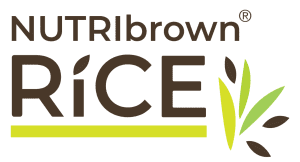7 Tips To Increase Immune System During Pandemic Via Balanced Nutrition
Do you want to increase your body’s immunity? Or how about recovering fast even if infected from Covid-19 viruses?
If so, then you’ll want to take a look at these 7 awesome tips for increasing the immune system during a pandemic via balanced nutrition. Check them out…
Tip 1: Eat lots of fiber
This is a good way to boost your immunity because it keeps our digestive system in a good condition, reduces gut inflammation, lowers cholesterol levels, and improves blood sugar levels. All you have to do is to include vegetables, fruits, or high fiber foods at least in 5 meals time. The recommended fiber intake per day is 20-25g for women and 30-38g per day for men.
For example, you can eat an apple during lunch and dinner while enjoying a meal that also contains vegetables.
Here’s one more example: Use the quarter quarter half-plate concept suggested by the Ministry of Health Malaysia as below.

Next up…
Tip 2: Reduce caffeine intake
Many people drink coffee 2-3 cups per day to keep themselves awake because they don’t know they’ll get a better immunity if they reduce the caffeine intake per day.
Studies show that at moderate to high doses of caffeine (100-400mg), our cells have less ability to fight against infection!
Go for a low dose of caffeine intake per day that is at approximately 100mg and below
For example, a low dose of caffeine is equal to 1- 1.5cups of regular coffee

Tip 3: Don't forget your protein
A good way to do this is to choose lean protein.
It’s also a good idea to choose the plant-based protein. That’s because protein plays important role in repairing tissue and fight over viral infection or bacterial infection.
But heads up: just be sure to avoid raw, processed food and fatty protein. You won’t boost up your immunity but rather causes other health issues such as food poisoning or high blood cholesterol.
Too much protein also adversely affects immunity by overtaxing the kidney by which can’t flush out it enough.
Thus, for males aged 18 years and above, a protein range between 58-62 grams per day is recommended. While for the women in the same age range, intake of protein is 50-53 grams per day.

Tip 4: Eat more healthy fats
You might think that fatty food is not good for your health. Yeah, it is correct in some ways but it is also wrong in some ways. Fat can be divided into saturated fat and unsaturated fat and the one that is good for immunity and general health is the unsaturated fat.
Unsaturated fats are considered healthy fat and mostly come from olive oil, sunflower oil, salmon, and other vegetable oil. These may boost your immune response to pathogens by decreasing inflammation.

Tip 5: Cut down sugary foods and drinks
If you are a sweet tooth person, pay attention to this especially during this stay-at-home period. Research has shown that too much sugar in the body will let the viruses and bacteria propagate more and that is why diabetic patients tend to recover much slower than the normal healthy person.
A study concluded that 75gram of sugar has the tendency to weaken the immune system. 75 grams of sugar is equal to 5 tablespoons of sugar!
Malaysian Dietary Guidelines suggested only 10% of sugar out of 60% of carbohydrates is permitted per day. This is equivalent to 2 tablespoons of sugar per day for someone on a 2,000 calorie diet.

Tip 6: Eat fermented food or prebiotics and probiotics
Fermented food includes good bacteria which is beneficial for gut health. These good beneficial bacteria are called probiotics. Probiotics may help give your immune system a boost and inhibit the growth of harmful gut bacteria.
In a 3-month study in 126 children, those who drank 2.4 ounces (70 mL) of fermented milk daily had about 20% fewer childhood infectious diseases, compared with a control group.
If you are not a fan of fermented food, go for probiotic supplementation or any other option. Don’t forget the prebiotic too. Prebiotics is the food for the growth of these good probiotics.
Sources of prebiotics are inulin, wholegrain, banana, onions, and garlic.

Tip 7: Don't forget the other micronutrients
Research showed that supplementing with certain vitamins, minerals, herbs, and other substances can help improve immune response and protect against illness.
These micronutrients are Vitamin D, Vitamin C, Vitamin B complex importantly Vitamin B12 and Vitamin B6, Vitamin A, Vitamin E, Zinc, Selenium, and Iron.
Although these supplements may offer a small benefit for immune health, they should not and cannot be used as a replacement for a healthy lifestyle.
Conclusion
It feels really good when you’re finally able to know 7 tips on how to increase the immune system during the pandemic turns to the endemic situation via taking balanced nutrition. That’s why you’ll want to put these tips to work for you. But don’t take my word for it – try them out to see for yourself!
One last bonus tip is “A truly healthy immune system depends on a balanced healthy diet over time,”

